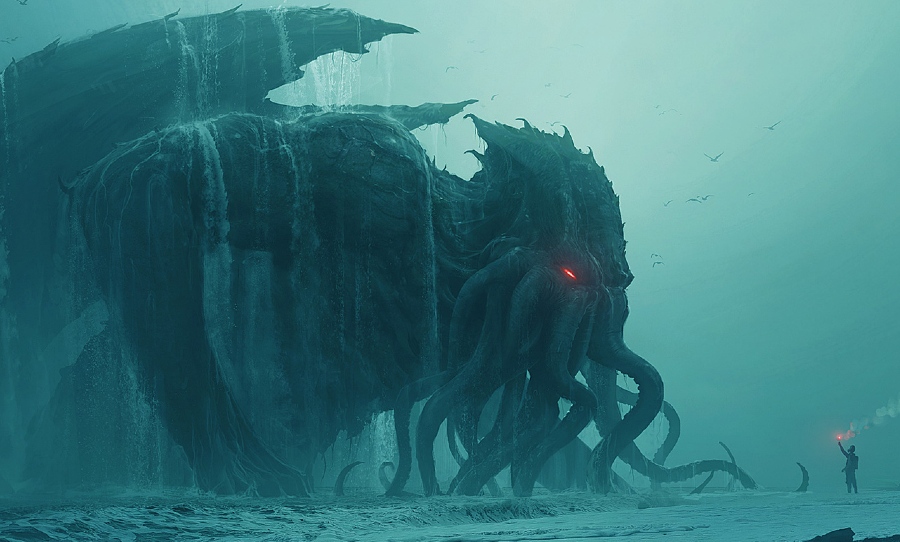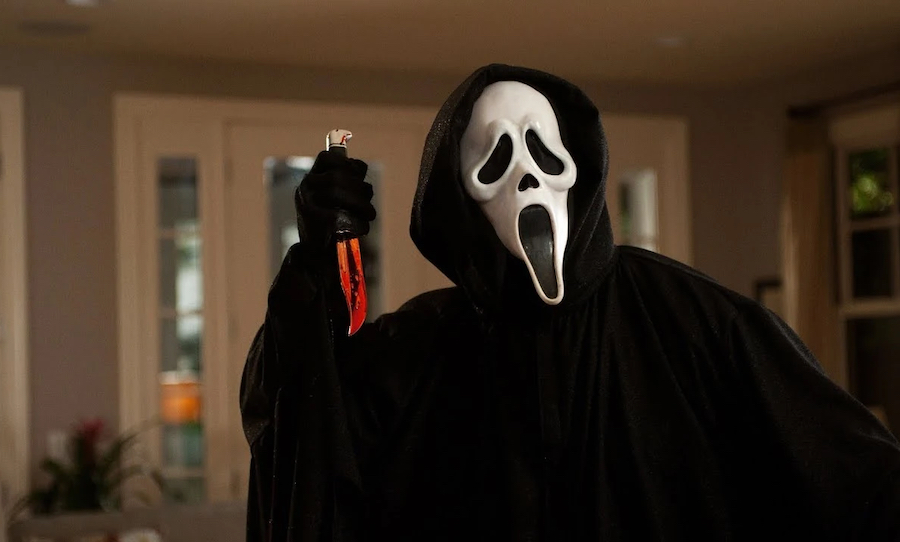Lovecraftian horror focuses on a fear of the unknown and the relationship between knowledge and madness. It is notoriously tricky to pull off, so we decided to break down which video games, series, and films get it right.
Lovecraftian horror gets its name from early 20th-century writer H.P. Lovecraft. While never truly successful in his lifetime, Lovecraft is now recognised as one of the most influential horror writers of all time.
Trading in literary traditions rooted in religion and superstition, Lovecraft set his sights on something more existential and cosmic in nature. He abandoned the Judeo-Christian framework (a world created by a loving God) and imagined an ancient and hostile universe beyond humanity’s comprehension.
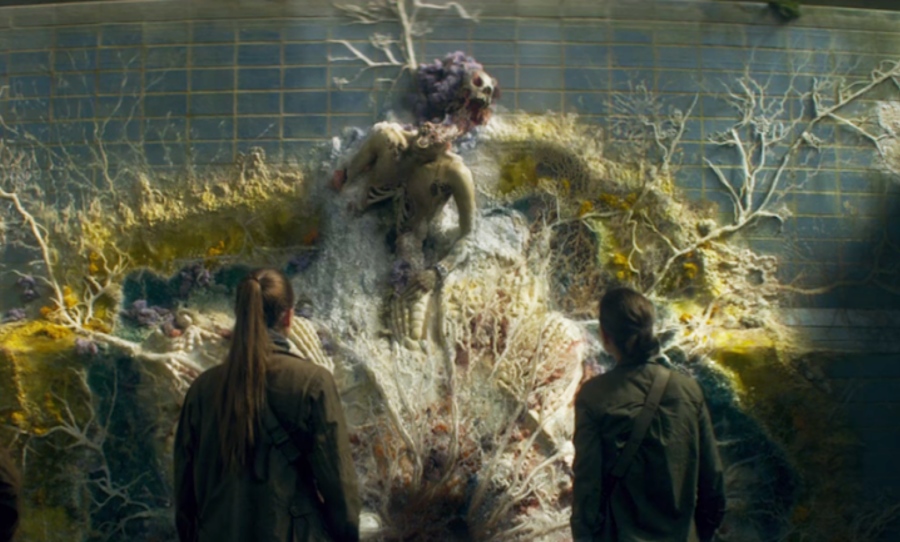
This is the basis of Lovecraftian horror, a combination of existential dread and the creeping suspicion that what we can’t see is far more disturbing than what we can, even if what we can see is a terrifying monstrosity from the bottom of the ocean.
However, as is probably evident, it’s a difficult thing to pull off. Hell, H. P. Lovecraft himself struggled to hit the mark regularly.
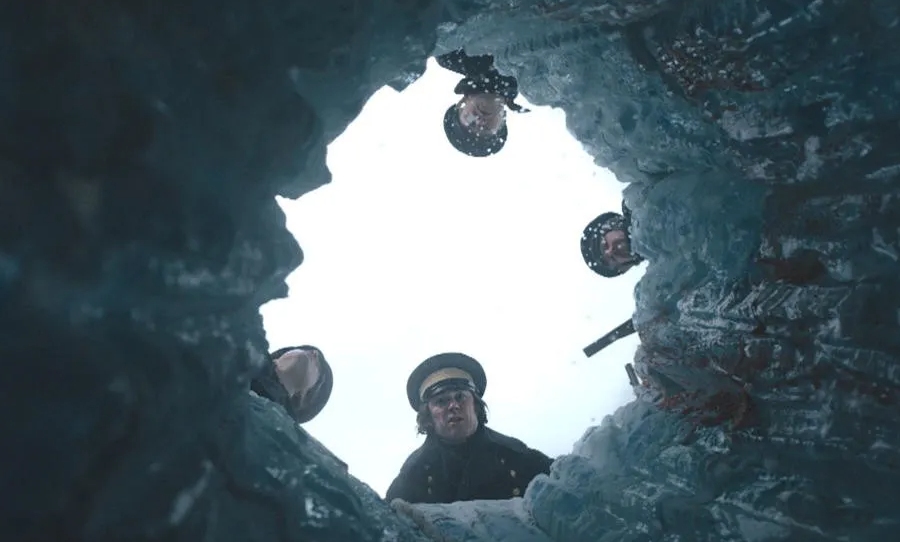
Why Lovecraftian horror is so tricky
Most audiences eventually grow tired of being told of a creature that’s so scary it can’t be described. Tension and wonder are fundamental in Lovecraftian horror, often building to the point where any ending would feel unsatisfactory.
This focus on the unknown makes the genre particularly hard to execute, particularly in visual art forms such as film and video games. With this in mind, we set out to craft an unconventional list that celebrates the best examples of Lovecraftian horror regardless of their medium.
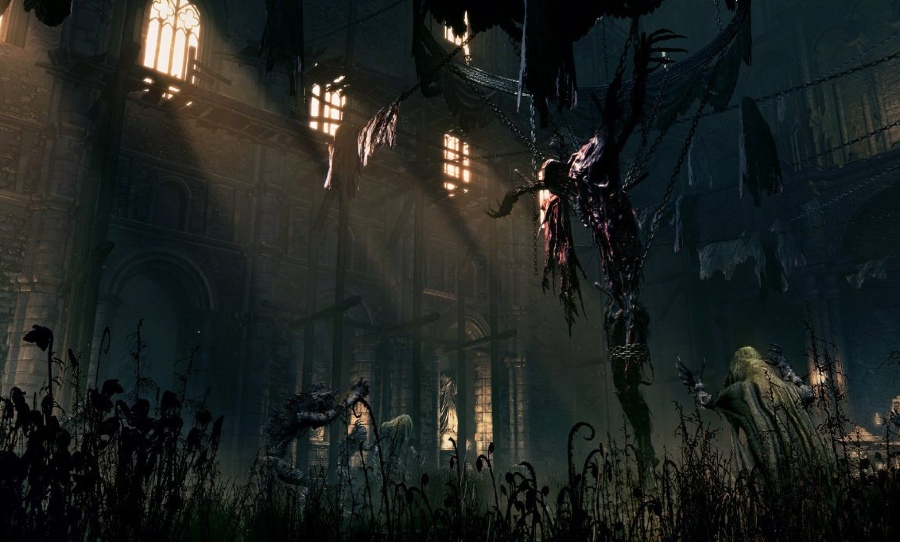
Bloodborne
Bloodborne is an acclaimed Souls-like video game from Japanese developer FromSoftware, and, at a glance, is probably an odd choice to sit at the top of this list. The game breaks the rules of Lovecraftian horror in several obvious and superficial ways – primarily that it plays like an action game.
That said, Lovecraft’s influence on director Hidetaka Miyazaki is apparent. The game involves cosmic entities, madness, forbidden knowledge, cults, interspecies breeding and gooey tentacles.
Surprisingly, the game’s action never detracts from its tension either, making it a unique example of Lovecraftian horror that succeeds on its own terms.
Amnesia: Rebirth
The Amnesia series is deserving of praise in general. The Dark Descent is undeniably one of the most influential horror games ever made), but we will focus on Amnesia: Rebirth for this list.
Amnesia: Rebirth is a fantastic example of a Lovecraftian horror video game; it tells an engaging story of a mother stranded in a hostile environment, being plagued by cosmic and personal forces. It also absolutely nails an atmosphere where fear of the unknown and what’s just out of view is real.
Call of Cthulhu: Dark Corners of the Earth
Call of Cthulhu: Dark Corners of the Earth is, somewhat confusingly, based on Lovecraft’s short story The Shadow Over Innsmouth (not the earlier Call of Cthulhu). You take on the role of a private investigator who stumbles upon a seaside town with a dark secret while searching for a missing person.
It’s probably fair to say the game is more interested in the Cthulhu mythos than Lovecraftian horror as a genre. Despite this, it does an admirable job bringing a fairly traditional Lovecraft story into the world of video games. It also has some great action set-pieces (there’s a scene involving doors that’s legendary).
Returnal
There is an interesting debate regarding gameplay and themes when it comes to Lovecraftian horror in video games. Returnal nails the philosophical framework and tropes of the genre; an alien race with mysterious motives, personal trauma and madness, and forgotten ruins.
That said, the gameplay of Returnal is fast and frantic, and you will actually feel incredibly powerful (despite the horrific challenges that lay in front of you). Helplessness is an essential component of fear, which doesn’t translate in Returnal. Nonetheless, it is more than worth a look for those interested in cosmic horror.
Darkwood
While dark, foreboding forests aren’t an essential component of Lovecraftian horror, it’s interesting how big a role they often play in it. The idea that the natural world doesn’t care for the concerns of man is probably at the heart of it, and Darkwood manages to weave this concept into the fabric of its gameplay very effectively.
You awake as the prisoner of a madman, held captive in an isolated cabin in the woods. Once you escape you realise your ordeal is far from over, and that the forest seemingly doesn’t let anything in or it. Mysterious forces, cultists, madmen and Slavic folklore combine to make Darkwood a unique and powerful example of a Lovecraftian horror video game.
Honourable mentions – video games: Darkest Dungeon, Clive Barker’s Undying, Eternal Darkness, Sunless Sea.
The Endless
The Endless is a nuanced and specific take on Lovecraftian horror, and that’s one of the reasons why it succeeds where so many of its contemporaries fail. The film focuses on the human story of two brothers who escape life in a cult, only to find themselves drawn back by unexplainable phenomena.
Made on an indie budget by filmmaking duo Justin Benson and Aaron Moorhead, The Endless punches well above its weight in terms of mystery and emotion. Fans should also check out Spring, where the filmmakers explore Lovecraftian horror in a highly original and different way.
The Lighthouse
The Lighthouse is the second film from promising director Robert Eggers, and it leans heavily into a very particular sort of madness that is a critical part of Lovecraftian horror.
Many Lovecraft-inspired films tend to try and show you what Lovecraft would only ever allude to. This is almost always a mistake, as the audience’s imagination will generally do a better job filling in horrific details than a low-budget effects crew.
The Lighthouse gets this and succeeds by leaving most of its mysteries intentionally opaque. It also has a little taste of the dark comedy Lovecraft experimented with within his short story Herbert West – Reanimator.
Annihilation
Annihilation is a cerebral yet compelling take on Lovecraftian horror (and a clever reimagining of the Lovecraft short story The Colour Out of Space to boot). Alex Garland’s sci-fi horror film brilliantly examines the way humans interact with the unknown, including facets of themselves.
Annihilation is undoubtedly inspired by Lovecraft in terms of its tone and atmosphere. That said, it takes its relatively standard set-up (alien material hits earth and triggers weird shit) in a direction that is both surprising and poignant.
The Thing
John Carpenter’s The Thing is a seminal sci-fi horror film that pits a team of scientists against a shape-shifting alien entity. Heavily inspired by Lovecraft’s At the Mountains of Madness, it turns a monster from outer space into a metaphor for paranoia and suspicion.
It’s also a really entertaining movie with some of the best practical special effects to ever grace the silver screen. A masterpiece of Lovecraftian horror that serves well as an introduction to the sub-genre.
Dagon
It would be unfair not to include at least one pulpy, well-meaning Lovecraft adaptation on this list. And Dagon at least gets quite a lot right. Going all-in on the ‘outsiders wander into creepy fishing town’ trope, there’s a lot of Lovecraft-related stuff that never fully develops into Lovecraftian themes.
Still, Lovecraft wrote about monsters from the sea and their human-adjacent offspring, and Dagon goes there too. Perhaps not Lovecraftian horror, but a bold and enthusiastic homage nonetheless.
Honourable mentions – films: The Void, The Thing, In the Mouth of Madness, The Colour Out of Space, The Mist, Dark City, Re-Animator, Event Horizon, Prometheus, The Empty Man, Underwater.
The Terror Season 1
The Terror is a fantastic example of grounding Lovecraftian horror a little closer to our earthly domain. Based on Dan Simmon’s weighty novel about a failed expedition to the Arctic, it is equal parts historical drama, thriller and supernatural horror. It’s also a wonderfully wild ride that’s executed with absolute precision.
True Detective Season 1
I will keep this one brief because saying too much would break the subtle Lovecraftian horror spell that True Detective deftly weaves. There is a nervous energy that could easily be described as dread and the gently prodding suggestion that something is amiss.
Go in with an open mind, and this neo-noir thriller is likely to get its hooks into you. My final piece of advice is to, despite the obvious temptation, not binge the series too quickly. Lovecraftian horror works best when given ample room to breathe…and grow.
We will be adding to this list in the future, so be sure to check back in.
